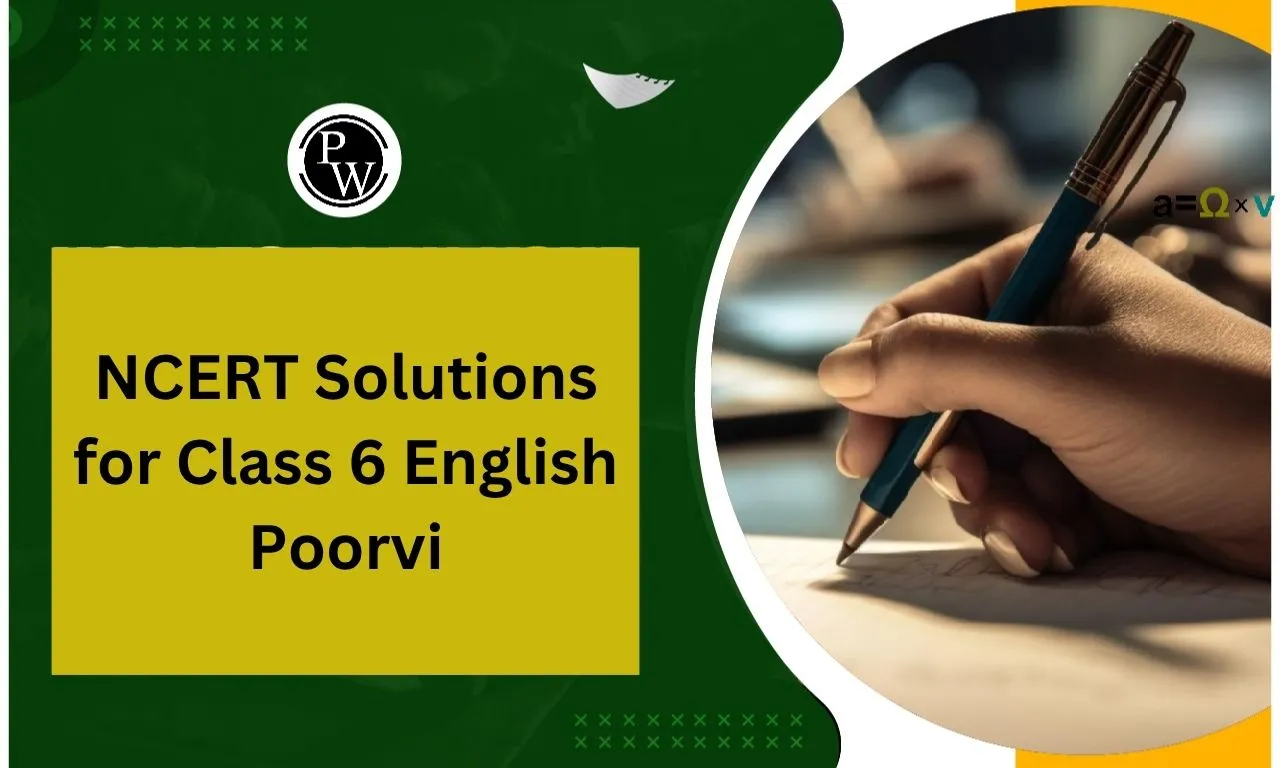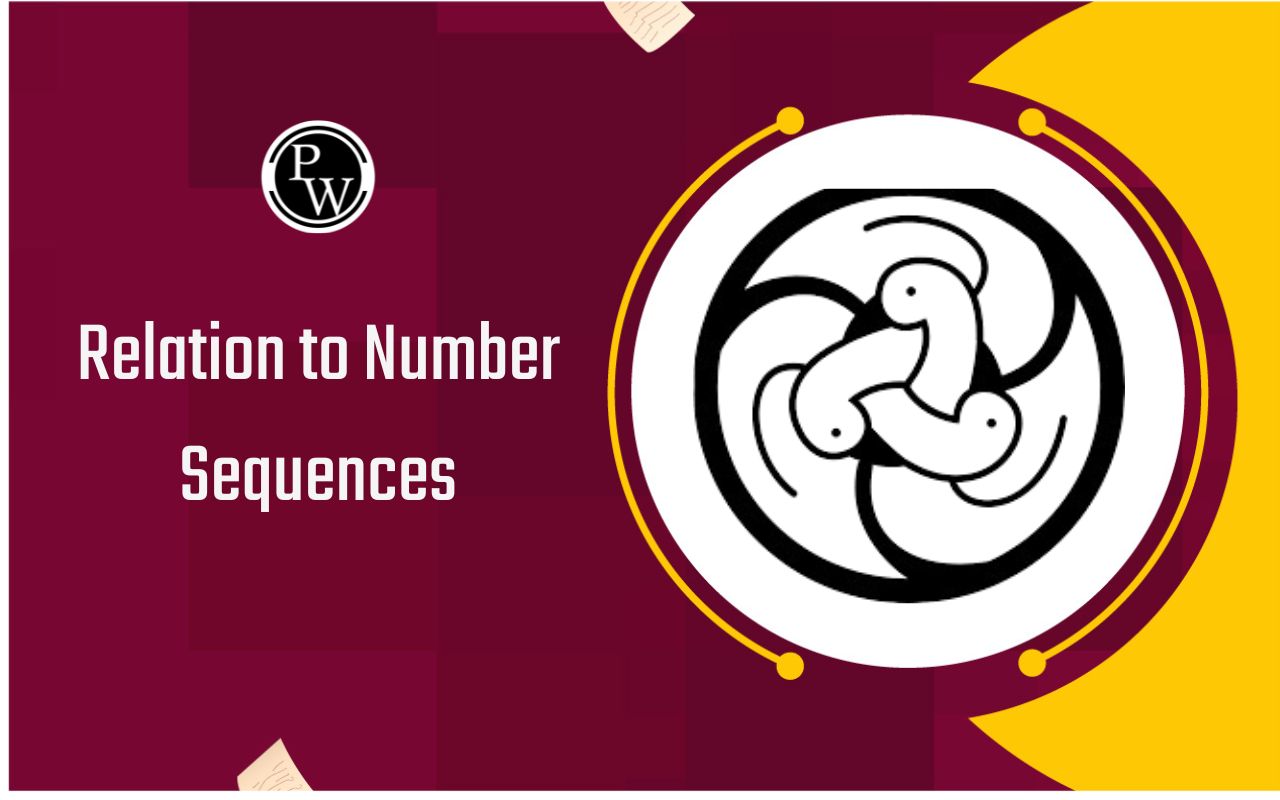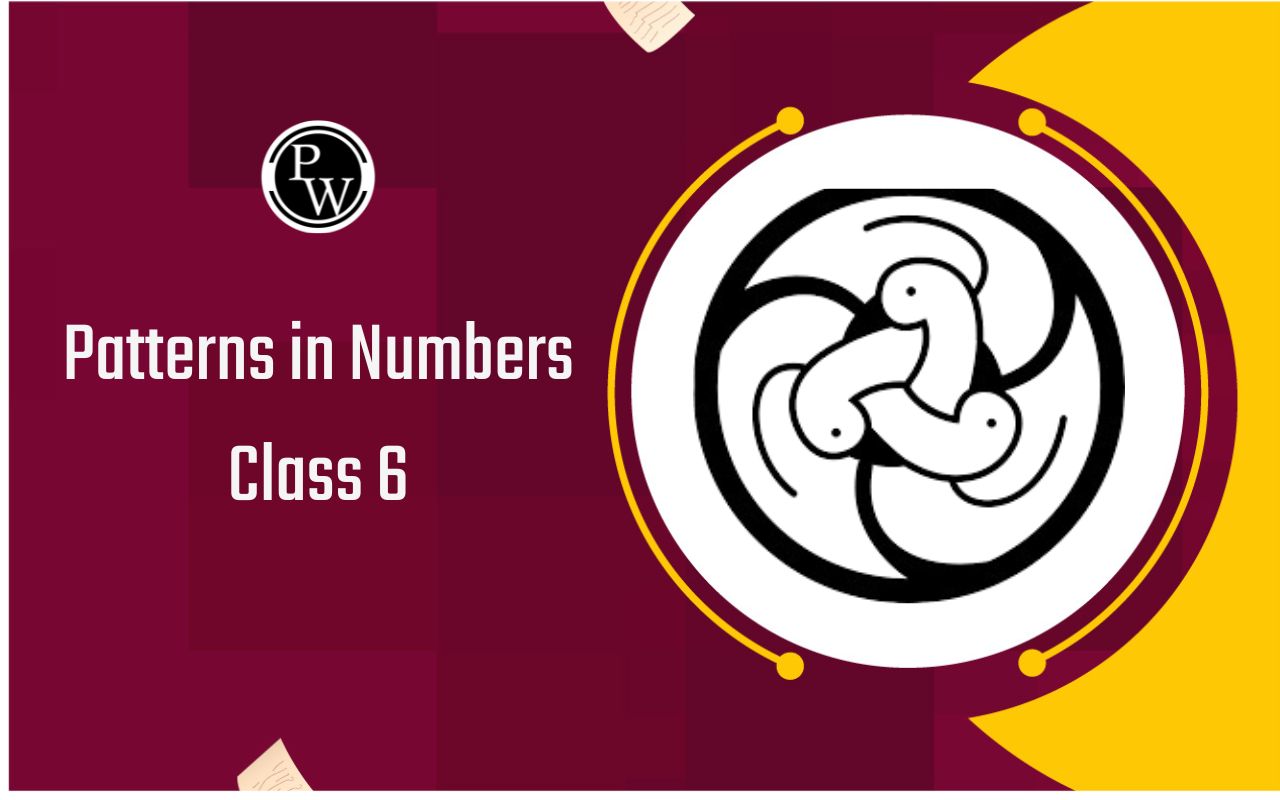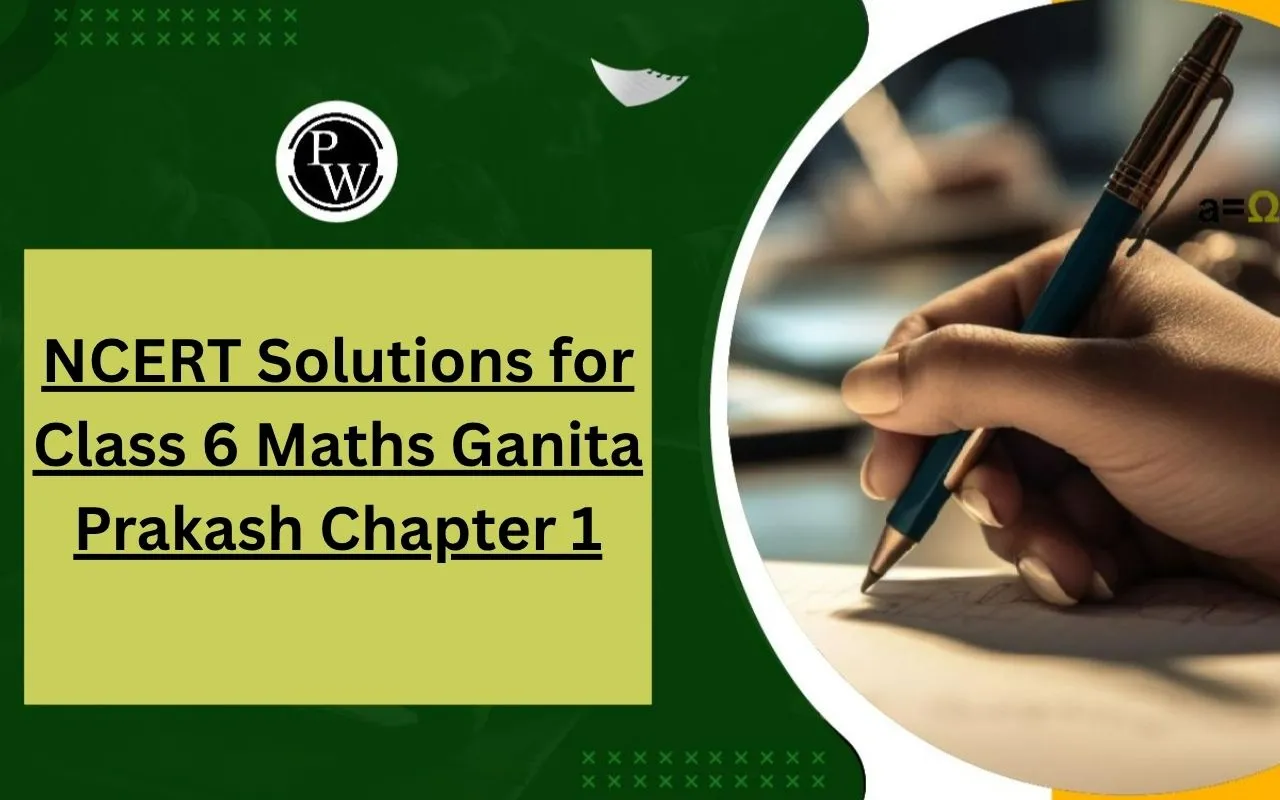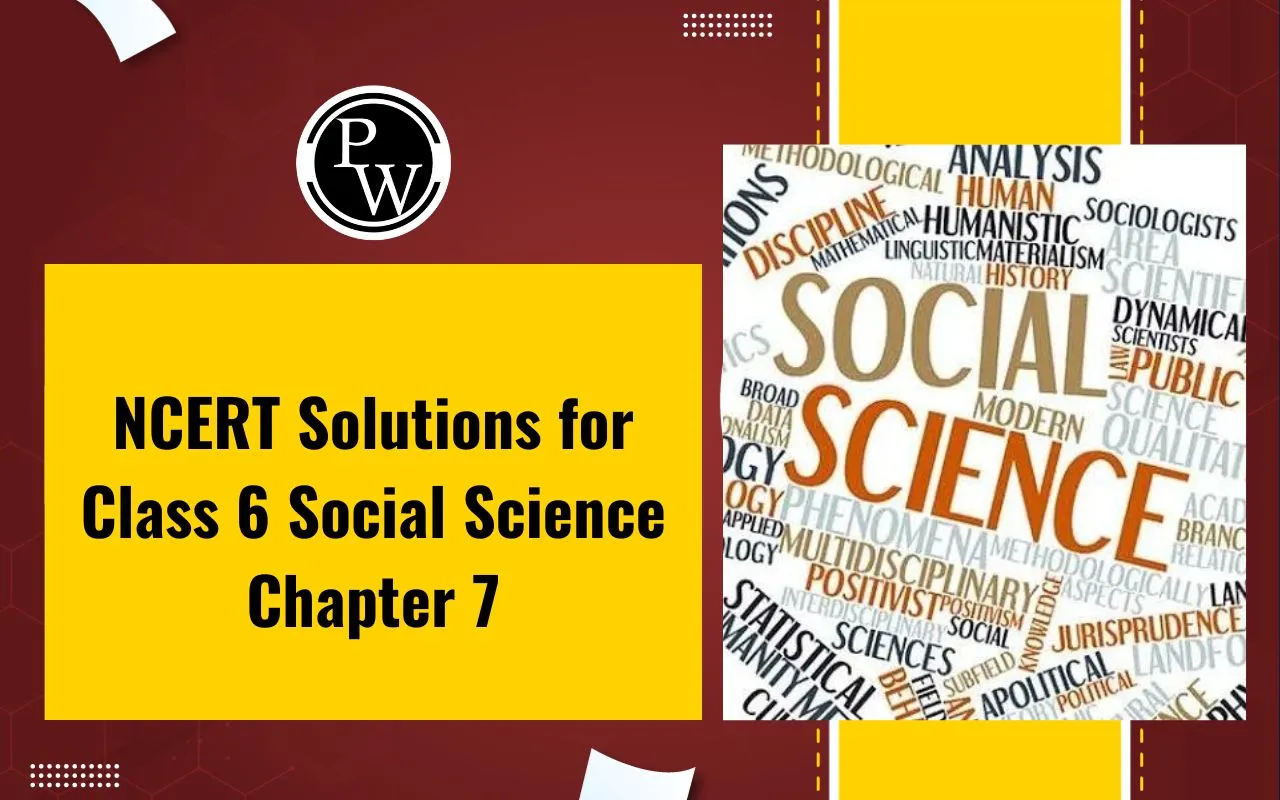
NCERT Solutions for Class 6 English Honeysuckle Poem Chapter 8
NCERT Solutions for Class 6 English Honeysuckle Poem Chapter 8: NCERT Solutions for Class 6 English Unit 8 Poem – Vocation are now conveniently accessible for download on Physics Wallah. These solutions are meticulously crafted to assist students in comprehending the poem and preparing effectively for their English exams. The poem "Vocation" narrates the tale of a boy who, during his journeys to school or the market, encounters various people engrossed in their occupations. Envious of their freedom in doing meaningful work, he yearns to experience the same. For an in-depth understanding of the poem, students are encouraged to explore the free-to-access NCERT Solutions. To access these NCERT Solutions for Class 6 English, simply download the PDF files through the provided links. Elevate your preparation and excel in your English examinations with these comprehensive solutions.NCERT Solutions for Class 6 English Honeysuckle Poem Chapter 8 Overview
In the Honeysuckle book prescribed by NCERT, Chapter 8 features a captivating poem titled "Vocation," adding another dimension to students' understanding. PW's adept faculty has meticulously prepared NCERT Solutions for Class 6 English Honeysuckle Chapter 8, enhancing the learning experience for students. The chapter notes offer insights into the summary, analysis, and theme of the poem, facilitating comprehensive exam preparation. Access and utilize these NCERT Solutions to ensure effective readiness for your upcoming exams.
NCERT Solutions for Class 6 English Honeysuckle Poem Chapter 8 Vocation
The key topics covered in NCERT Solutions for Class 6 English Honeysuckle Poem Chapter 8, "Vocation," include:1) Introduction to Vocations:
Class 6 students are introduced to the concept of vocations, exploring the diverse array of professions that contribute to shaping society. The chapter aims to instill an understanding of the importance of various roles people play in their everyday lives.2) Overview of the Poem:
The poem "Vocation" revolves around a young boy who, on his way to school or the market, observes people engaged in different vocations. It captures the essence of the boy's admiration for the freedom and satisfaction these workers find in their jobs.3) Explanation of Stanzas:
The NCERT Solutions provide a stanza-by-stanza breakdown, offering a detailed analysis of the poetic elements. Students delve into the imagery and metaphors employed by the poet, unraveling the layers of meaning embedded in each stanza.4) Meaning of Challenging Words:
To enhance comprehension, the solutions clarify the meanings of challenging words found in the poem. This aids students in grasping the nuances of the poet's language and ensures a more profound understanding of the verses.5) Summary and Interpretation:
A comprehensive summary of the poem is presented, capturing its essence and thematic focus. Interpretations are offered to shed light on the emotions and aspirations expressed by the young protagonist and the workers he observes.6) Question-Answer Session:
Students engage in a meaningful question-answer session that encourages critical thinking. This interactive approach ensures that learners not only comprehend the text but also develop the skills to articulate their interpretations and opinions effectively.7) Exploration of Themes:
The chapter explores overarching themes embedded in the poem, connecting them to real-life experiences and observations. Themes such as the dignity of labor, the diversity of vocations, and the intrinsic value of each profession are discussed.8) Enhancing Language Skills:
Through the study of poetic expressions, students are exposed to language rich in imagery and creativity. This helps in honing language skills, fostering an appreciation for the beauty of words in the context of literary works. NCERT Solutions For Class 6 English Honeysuckle Poem Chapter 8 provide a holistic learning experience, guiding students through the exploration of vocations and the poetic landscape of "Vocation." The solutions cater to both literary analysis and language enrichment, ensuring a well-rounded understanding of the poem.CBSE Board Exam Centre List 2024
NCERT Solutions for Class 6 English Honeysuckle Poem Chapter 8 Short Long Ques and Ans
Here are the NCERT solutions for class 6 English Honeysuckle poem chapter 8 short and long questions with answers:Short Answer Questions:
1. Who does the child encounter on his way to school? Answer: The child encounters a hawker selling bangles on his way to school. 2. What does the hawker sell, and how does the child feel about him? Answer: The hawker sells bangles. The child feels envious of the hawker's apparent freedom. 3. Whom does the child observe from his house's gate, and what does this person do? Answer: The child observes a gardener from his house's gate. The gardener is seen digging the soil. 4. Why does the child admire the gardener? Answer: The child admires the gardener because he digs the soil without any restrictions, getting dirty in the process. 5. Whom does the child see through his open window at night, and what is this person doing? Answer: The child sees a watchman through his open window at night. The watchman is patrolling the lane. 6. What fascinates the child about the watchman? Answer: The child is fascinated by the watchman's freedom to move up and down the lane at night without anyone instructing him to retire. 7. Why does the child feel envious of the hawker? Answer: The child feels envious of the hawker because the hawker seems to enjoy the freedom to choose any road he likes and returns home without fixed hours, suggesting a carefree and spontaneous lifestyle. 8. What activity does the gardener engage in, and how does the child view him? Answer: The gardener engages in digging the soil. The child views the gardener positively, admiring him for his freedom in pursuing his work without restrictions, even if it means getting dirty. 9. What does the child observe about the watchman, and why does he find it fascinating? Answer: The child observes the watchman moving up and down the lane at night through his open window. The child finds it fascinating because the watchman seems to be free to patrol the lane without anyone instructing him to retire, enjoying independence in his nocturnal duty. 10. Summarize the child's aspirations based on his observations of the hawker, gardener, and watchman. Answer: The child aspires to have the freedom and spontaneity of the hawker, the carefree approach to work like the gardener, and the nocturnal independence of the watchman. These aspirations reveal the child's desire for a life without constraints.Long Answer Questions:
1. Describe the hawker's routine and why the child wishes to be like him.
Answer: The hawker, selling bangles, seems to have an unstructured routine. He chooses any road he likes and returns home without fixed hours. The child wishes to be like him because of the hawker's apparent freedom and spontaneity in choosing his path. 2. Explain the child's observations about the gardener and why he aspires to be a gardener. Answer: The child observes the gardener digging the soil from his house's gate. The gardener seems unconcerned about getting dirty. The child aspires to be a gardener because he admires the freedom the gardener enjoys in engaging in his vocation without any restrictions. 3. Discuss the child's fascination with the watchman and why he wishes to be a watchman. Answer: The child, observing the watchman through his open window at night, is fascinated by the watchman's nocturnal movements. The fact that the watchman patrols the lane without anyone instructing him to retire intrigues the child, leading to his desire to be a watchman. 4. Discuss the significance of the child's observations and aspirations in the poem. Answer: The child's observations of the hawker, gardener, and watchman reflect his yearning for freedom and unconstrained living. The significance lies in the child's perception of different professions as pathways to a life less bound by rules and schedules. It emphasizes the human desire for autonomy and spontaneity, contrasting with the structured routines of the child's own life. 5. Analyze how the poem "Vocation" portrays the child's admiration for certain vocations. Answer: The poem portrays the child's admiration for the hawker, gardener, and watchman as symbols of freedom and independence. Each vocation represents a unique aspect of unrestricted living that appeals to the child. The analysis reveals the child's idealization of professions that embody spontaneity and lack of constraints.| CBSE Syllabus Class 6 | |
| CBSE Class 6 Science Syllabus | CBSE Class 6 Maths Syllabus |
| CBSE Class 6 Social Science Syllabus | CBSE Class 6 English Syllabus |
NCERT Solutions For Class 6 English Honeysuckle Poem Chapter 8 Imp Ques With Answers
1. Why does the child feel envious of the hawker?
Answer: The child feels envious of the hawker because the hawker seems to enjoy the freedom of choosing any road he likes and returning home without fixed hours, suggesting a carefree and spontaneous lifestyle. 2. What is the gardener doing, and why does the child admire him? Answer: The gardener is digging the soil. The child admires the gardener because he seems free to dig the soil and soil his clothes without anyone instructing him otherwise, symbolizing a carefree approach to work. 3. What fascinates the child about the watchman's job? Answer: The child is fascinated by the watchman's job because he sees the watchman moving up and down the lane at night through his open window. The watchman's nocturnal patrols give an impression of independence and freedom. 4. How does the child view the occupations of the hawker, gardener, and watchman? Answer: The child views the hawker, gardener, and watchman positively, admiring them for the apparent freedom and lack of restrictions in their respective occupations. Each profession symbolizes a form of independence that the child desires. 5. What does the child aspire to be based on his observations? Answer: Based on his observations, the child aspires to have the freedom of the hawker, the carefree approach to work like the gardener, and the nocturnal independence of the watchman. These aspirations reveal the child's desire for a life less constrained. 6. Discuss the significance of the child's aspirations in the poem. Answer: The significance lies in the child's yearning for freedom and autonomy. The aspirations reflect a desire for a life less bound by rules and schedules. It emphasizes the human longing for spontaneity and independence, contrasting with the structured routines of the child's own life. 7. How does the poem "Vocation" explore the theme of freedom and independence? Answer: The poem explores the theme of freedom and independence through the child's observations and aspirations. The occupations of the hawker, gardener, and watchman symbolize different forms of freedom, and the child's admiration for these professions underscores the human desire for autonomy. 8. What emotions does the child's envy of certain vocations evoke in the poem? Answer: The child's envy of certain vocations evokes emotions of yearning, admiration, and a desire for a life less constrained. The poem conveys the child's emotions through his observations of professions that represent freedom and spontaneity. 9. Who is the speaker in the poem? Answer: (i) The speaker in the poem is a school-going child. The people the speaker meets are the hawker selling bangles, the gardener working in the garden, and the watchman patrolling the street. (ii) The child in the poem wishes to be a hawker, a gardener, or a watchman because these people seem to enjoy freedom in their work. The child desires the same freedom. The lines expressing these wishes are: "I wish I were a hawker, spending my day in the road." "I wish I were a gardener, digging away at the garden." "I wish I were a watchman walking the street all night." (iii) The child doesn't like the constraints on his actions. 10. Where did the child meet a hawker? Answer: The child met a hawker on the road while he was on his way to school in the morning. 11. When did the child see a gardener? Answer: The child saw the gardener outside his house in the afternoon after returning from school. 12. Why did the child want to be a gardener? Answer: The child wanted to become a gardener so that he could dig the ground, and no one could stop him from doing so. 13. How did the child see a watchman? Answer: The child saw the watchman through an open window when he was told to go to sleep. 14. What did the child mention about the hawker? Answer: The poet mentioned that the hawker was not in a hurry. He could choose any road he liked, and there was no fixed time for him to return home. 15. Describe the activity of the watchman. Answer: The watchman was walking on a dark and lonely lane with his lantern, following his shadow. According to the child, he had never gone to bed in his life. 16. What kind of life is led by the hawker, watchman, and gardener? Answer: The hawker, watchman, and gardener are leading vocational lives. They live the way they want to, without any restrictions. 17. What activities are dear to little children? Who does the child envy and why in the poem Vocation? Answer: Children naturally love freedom, fun, and adventure. In the poem "Vocation," the child first sees a hawker who enjoys freedom of movement. The child wishes to become a hawker. Then, he sees a gardener working freely in the afternoon. Finally, the child feels like becoming a watchman who walks the streets all night. The child envies them because they seem free and unrestricted. 18. Why did the child find others’ life interesting? Answer: The child found others' lives interesting because he felt under strict control within his family. Restricted in his movements and with specific rules, he envied the seemingly carefree lives of the hawker, gardener, and watchman. Their freedom to go anywhere at any time fascinated the child, leading him to wish for an exchange of lives.NCERT Solutions For Class 6 English Honeysuckle Poem Chapter 8 Summary
The poem "Vocation" from Class 6 English Honeysuckle explores the innocent perspective of a child who, on his way to school or at home, encounters individuals with distinct vocations – a hawker, a gardener, and a watchman. Each of these characters embodies a sense of freedom that captivates the child's imagination.Encounters on the Way:
- The Hawker: The child daily encounters a hawker selling bangles on his way to school. The hawker's unstructured routine, choosing any road he likes and returning home without fixed hours, sparks envy in the child. The child wishes for the same sense of freedom and spontaneity in his own life.
- The Gardener: Observing the gardener from his house's gate, the child sees him diligently digging the soil, unconcerned about getting dirty. The child is drawn to the gardener's freedom, appreciating that no one restricts him from engaging in his vocation. The child aspires to be a gardener, reveling in the perceived liberty of such work.
- The Watchman: Through his open window at night, the child observes the watchman patrolling the lane. The watchman's nocturnal movements without anyone instructing him to retire to bed captivate the child's admiration. The child desires to embrace the role of a watchman, enchanted by the freedom to be vigilant during the night.
Themes Explored:
- Yearning for Freedom: The central theme revolves around the child's yearning for the perceived freedom enjoyed by those engaged in different vocations. The hawker, gardener, and watchman represent diverse professions, each embodying a sense of autonomy that the child finds alluring.
- Childhood Aspirations: The poem beautifully captures the innocence of childhood aspirations. The child's wishes reflect a genuine desire to break free from the constraints of a structured routine, imagining a life of spontaneity and unrestricted choices.
NCERT Solutions for Class 6 English Honeysuckle Poem Chapter 8 PDF Download
Embark on a literary journey with NCERT Solutions for Class 6 English Honeysuckle Poem Chapter 8, "Vocation," exploring the innocence and aspirations of a young child. This chapter encapsulates the yearning for freedom and a desire for a carefree life as seen through the eyes of the protagonist. To enhance your understanding and preparation, these NCERT Solutions are an invaluable resource. You can conveniently download the PDF of NCERT Solutions for Chapter 8 from reputable educational platforms. The solutions are crafted in adherence to the CBSE guidelines, providing accurate and comprehensive answers to all questions. These solutions empower students to grasp the nuances of the poem, ensuring a thorough comprehension of the themes and sentiments portrayed. For an enriched learning experience, Physics Wallah, a renowned educational platform, offers NCERT Solutions for Class 6 English Honeysuckle Poem Chapter 8 in PDF format. Physics Wallah is dedicated to providing high-quality educational resources, and their comprehensive solutions cater to the specific needs of students, facilitating effective exam preparation. In the downloadable PDF, students can access detailed explanations, summaries, and analysis of the poem, enabling a deeper engagement with the literary content. Whether you are a student or an educator, these solutions are instrumental in reinforcing key concepts and fostering a profound appreciation for the beauty of language and expression. Download the NCERT Solutions For Class 6 English Honeysuckle Poem Chapter 8 PDF from trusted platforms like Physics Wallah, and embark on a seamless learning experience that aligns with the curriculum and elevates your understanding of poetic expressions.NCERT Solutions for Class 6 English Honeysuckle Poem Chapter 8 FAQs
What is the theme of the poem "Vocation" in Class 6 English Honeysuckle?
The theme of the poem "Vocation" revolves around a child's observations and desires to lead a life of freedom enjoyed by a hawker, gardener, and watchman. The child envies their vocational lives and wishes to break free from the restrictions imposed on him.
Who are the people the child meets in the poem, and what are they doing?
The child in the poem meets a hawker, a gardener, and a watchman. The hawker sells bangles, the gardener digs the soil, and the watchman walks the streets at night.
Why does the child want to be a hawker, a gardener, and a watchman?
The child wishes to be a hawker to enjoy freedom of movement, a gardener to dig the ground without restrictions, and a watchman to walk the streets at night. The child is attracted to the seemingly unrestricted and carefree lives of these individuals.
What do the do’s and don’ts listed by the child indicate about his life?
The do’s and don’ts listed by the child indicate that he is subject to numerous restrictions and rules, leading to a desire for more freedom. The child must get his clothes dirty in the dust but must not come home at a fixed time, highlighting the constraints he wishes to break free from.
Why did the child find others' lives interesting?
The child found others' lives interesting because he perceived them as leading free and unrestricted lives. The hawker, gardener, and watchman could go anywhere at any time without limitations, which fascinated the child and triggered a desire for a similar lifestyle.
Talk to a counsellorHave doubts? Our support team will be happy to assist you!

Free Learning Resources
PW Books
Notes (Class 10-12)
PW Study Materials
Notes (Class 6-9)
Ncert Solutions
Govt Exams
Class 6th to 12th Online Courses
Govt Job Exams Courses
UPSC Coaching
Defence Exam Coaching
Gate Exam Coaching
Other Exams
Know about Physics Wallah
Physics Wallah is an Indian edtech platform that provides accessible & comprehensive learning experiences to students from Class 6th to postgraduate level. We also provide extensive NCERT solutions, sample paper, NEET, JEE Mains, BITSAT previous year papers & more such resources to students. Physics Wallah also caters to over 3.5 million registered students and over 78 lakh+ Youtube subscribers with 4.8 rating on its app.
We Stand Out because
We provide students with intensive courses with India’s qualified & experienced faculties & mentors. PW strives to make the learning experience comprehensive and accessible for students of all sections of society. We believe in empowering every single student who couldn't dream of a good career in engineering and medical field earlier.
Our Key Focus Areas
Physics Wallah's main focus is to make the learning experience as economical as possible for all students. With our affordable courses like Lakshya, Udaan and Arjuna and many others, we have been able to provide a platform for lakhs of aspirants. From providing Chemistry, Maths, Physics formula to giving e-books of eminent authors like RD Sharma, RS Aggarwal and Lakhmir Singh, PW focuses on every single student's need for preparation.
What Makes Us Different
Physics Wallah strives to develop a comprehensive pedagogical structure for students, where they get a state-of-the-art learning experience with study material and resources. Apart from catering students preparing for JEE Mains and NEET, PW also provides study material for each state board like Uttar Pradesh, Bihar, and others
Copyright © 2026 Physicswallah Limited All rights reserved.


